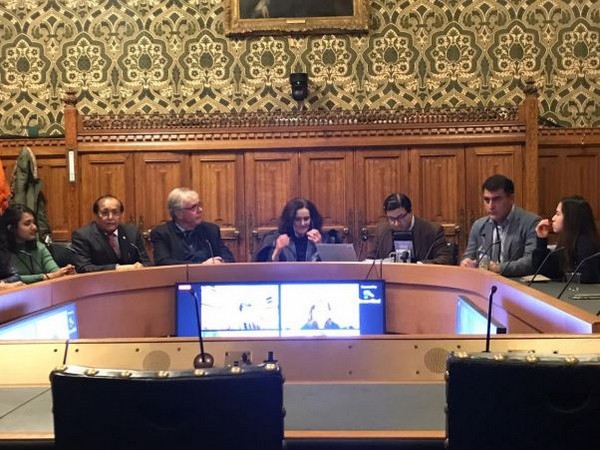Indo-Pacific region remains the future engine of the global economy: Experts
British Parliamentarians and experts have called the Indo-Pacific region one of the greatest current and future engines of the global economy at an event titled Indo-Pacific APPG Dialogue at the House of Commons in London on Wednesday.

- Country:
- United Kingdom
British Parliamentarians and experts have called the Indo-Pacific region one of the greatest current and future engines of the global economy at an event titled Indo-Pacific APPG Dialogue at the House of Commons in London on Wednesday. The event was attended by a number of MPs & Lords including MP Bob Blackman, Chair APPG Indo Pacific, MP Theresa Villiers, Vice Chair, Lord Waverley Vice Chair & Lord Rami Ranger Vice Chair.
The Indo-Pacific is emerging as one of the most important geopolitical regions in the world. Despite recent trends and the rise of nationalism and sub-nationalism in political discourse, the transnational interests of countries today have in reality moved well beyond the strict geographical categorisations of earlier times.
The region is made up of 14 countries: Australia, Bangladesh, Burma, India, Indonesia, Japan, Malaysia, New Zealand, Philippines, Singapore, South Korea, Taiwan, Thailand, and Vietnam. In a narrow sense, sometimes known as the Indo-West Pacific or Indo-Pacific Asia, it comprises the tropical waters of the Indian Ocean, the western and central Pacific Ocean, and the seas connecting the two in the general area of Indonesia
Across much of the Indo-Pacific region, the Chinese Communist Party (CCP) is using military and economic coercion to bully its neighbours, advance unlawful maritime claims, threaten maritime shipping lanes, and destabilize territory along the periphery of the People's Republic of China (PRC) The speakers provided a detailed insight into the emergence of the Indo-Pacific as a region of significance and explored the need for the UK to engage more proactively on the Indo-Pacific framework.
Cleo Paskal, a strategic Indo-Pacific expert spoke about the People's Republic of China's influence operations in the Pacific Islands and provided deep insight into the Chinese manoeuvring in the pacific islands over many years. Burzine Waghmar, Visiting India Fellow at Royal United Services Institute (RUSI), London talks about the Legacy Lessons for the Indo-Pacific & Quad and a message for the UK to become a partner with the Indo-Pacific alliance and play a role both in the diplomacy and the maritime security of the region.
Prof Steve Tsang, a Political scientist and historian whose expertise includes politics and governance in China, Taiwan and Hong Kong spoke about the need for the UK to have a clear and well-defined Indo-Pacific Strategy in light of the resurgence of China and its implications for the Indo-Pacific region as a whole. Prof Tsang, who is the current Director of the SOAS China Institute at the SOAS University of London, also spoke about the Chinese perception of the western alliance and diplomacy in the region and the need to continue to engage with China, but on the terms of global world order
Eerishika Pankaj, the Director of New Delhi-based think-tank, the Organisation for Research on China and Asia (ORCA), focuses on decoding domestic Chinese politics and its impact on Beijing's foreign policymaking. Eerishika spoke about the UK in Indo-Pacific frameworks: View from India amidst a Rising China challenge and emphasised the need for the UK to engage with like-minded democracies on the Indo-Pacific dialogue. (ANI)
(This story has not been edited by Devdiscourse staff and is auto-generated from a syndicated feed.)
ALSO READ
Unifying Waves: Strengthening Maritime Ties in the Indian Ocean Region
Uniting Forces: Tackling Maritime Threats in the Indian Ocean
India Assumes Leadership of Indian Ocean Naval Symposium
Tragedy Strikes: Chinese Tourists' Fatal Plunge in Lake Baikal
Tragedy Strikes Chinese Tourists at Lake Baikal










